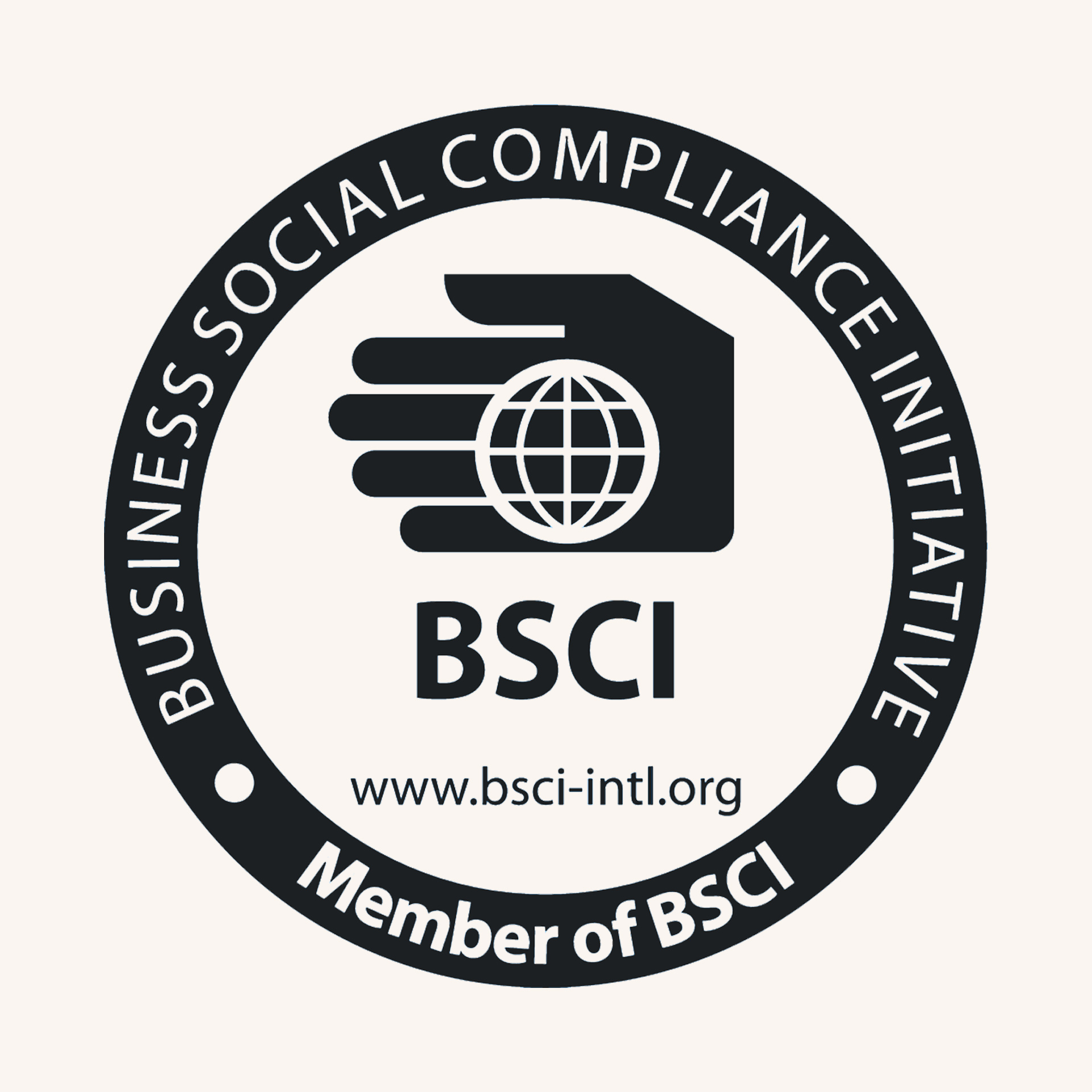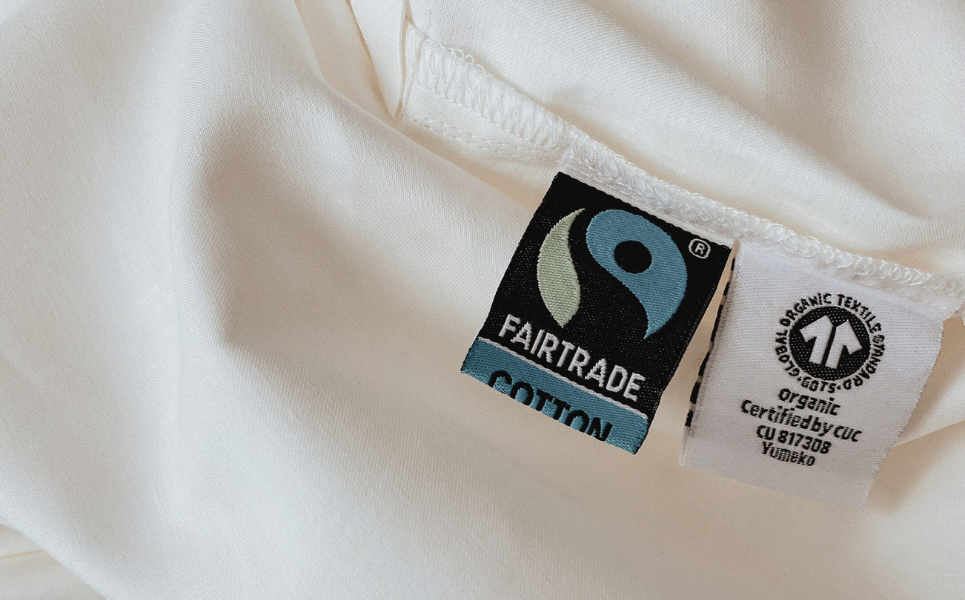Hallmark: BSCI
Hallmark: BSCI

What is Business Social Compliance Initiative(BSCI)? The label aims to improve working conditions in factories. The Foreign Trade Association (FTA) established the BSCI label in 2002 for companies in the textile industry. A few years later, the label was expanded to include the agricultural sector, making it applicable to industrial and primary production as well.
The BSCI label is not a certificate, but a membership that requires brands to comply with an internationally recognized code of conduct. A clothing brand does not have to meet all conditions at once, as the organization recognizes that this is virtually impossible in today's clothing industry. It also encourages gradual progress toward SA8000 certification. The BSCI label is not given to an individual product or supplier, but to a clothing brand as a whole looking at all production facilities in the chain.
Better working conditions
The BSCI Supervisory Board considers whether a company can become a member. Apparel brands and their supplier members of the BSCI are helped by the organization to improve working conditions in factories. Together with BSCI, the clothing brands draw up an improvement plan. This plan states how the factories can work step by step toward, among other things, the right to form a union within the factory, safe working conditions and no forced and child labor.
It is important to note that the BSCI label does not guarantee that working conditions are already acceptable. However, membership in the BSCI does offer assurance that garment brands and factories are working hard to meet the 11 conditions of the BSCI Code of Conduct.
The 11 conditions of the BSCI Code of Conduct are:
- All workers have the right to form unions and bargain collectively.
- No discrimination at work when it comes to hiring, promotions, training, pension plans, etc.
- At least the legal minimum wage must be paid. Workers have a right to a living wage that must be paid promptly and in full.
- There are "normal" working hours, meaning no more than 48 hours per week, one day off every seven days, and no more than 12 hours of overtime. Overtime should not be too frequent and workers should receive higher pay for it.
- Clean and safe working conditions, which means that corporal punishment, unusual punishment, sexual and other harassment by the employer is prohibited.
- No child labor, which means no children under the age of 15, or younger than the minimum working age if higher than 15.
- Workers under 18 are not allowed to do dangerous work and must comply with compulsory education if there is one. They are also not allowed to work at night.
- There is some employment, which means, among other things, a legally binding employment contract.
- There is no forced or prison labor.
- The environment must be protected.
- There is ethical practice without corruption.
Check
To become a member of BSCI, a participating clothing brand must use a monitoring system. In this way, the extent to which all suppliers meet the set requirements is checked. In addition, independent audits are done by accredited third parties. Apparel brands are tested during these audits to see if they fit within a framework within a number of years. After 3.5 years a clothing brand must meet the requirements within the 'Audit Cycle 1' framework and after 5.5 years it must meet the requirements of the 'Audit Cycle 2' framework.
At Sophie Stone you will find the Ecoalf, Underprotection and Bamboo Basics brands that are members with the BSCI seal of approval.












